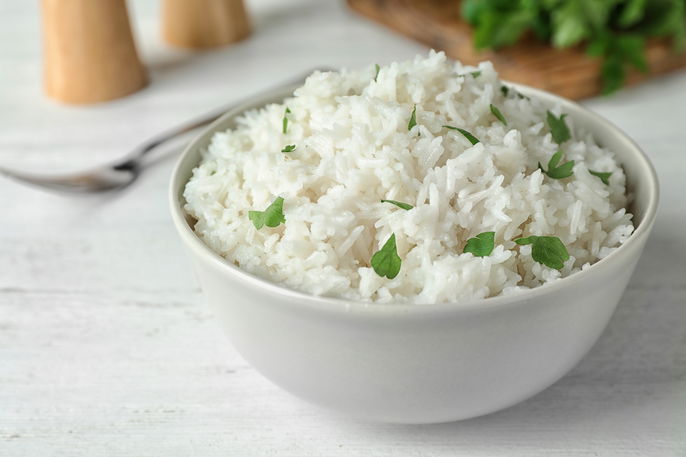Food poisoning is a condition that arises after consuming food contaminated by fungal or bacteria toxins. These toxins can be commonly found in foods that are improperly stored, are past their expiration date or have not been prepared following ideal hygiene practices.
Food poisoning can present with symptoms such as vomiting, nausea, headache and diarrhea, as well as causing fatigue, weakness and dehydration.
As soon as you notice any signs of food poisoning, you should increase your fluid intake and maintain a light, easy-to-digest diet. This will help to eliminate the toxin through the urine and stool. However, very intense symptoms should. be assessed, as treatment may be necessary in a hospital setting to prevent complications.

Main symptoms
Symptoms of food poisoning typically occur a few hours after ingesting the contaminated food. The main symptoms include:
- General malaise;
- Frequent nausea and vomiting;
- Diarrhea;
- Low-grade fever;
- Stomach ache.
In more serious cases, it's also possible to present with other types of symptoms, such as dry mouth, excessive thirst, earache, and dizziness. If you notice any of these symptoms or if symptoms do not improve after 2-3 days, you should see your doctor to rule out other conditions, and to initiate treatment as necessary.
Pregnant women, elderly people and children should always consult the doctor as soon as the first symptoms appear, as they are more prone to complications and generally present with more serious symptoms.
Online symptom checker
Enter your symptoms below if you suspect you may have food poisoning:
This symptom quiz is only a guidance tool and does not serve as a diagnosis. This quiz does not replace an assessment with a doctor or nurse practitioner.
Confirming a diagnosis
In general, a food poisoning diagnosis is confirmed through assessment of the patient's signs and symptoms and by evaluating the person's previous meals. If symptoms are intense or persistent, the doctor may order a blood testa to assess the patient's health status, as well as a stool test to identify the infectious agent causing the infection.
What causes food poisoning?
Food poisoning is caused by toxins released by harmful microorganisms that can be present in food. It is most commonly caused by Staphylococcus aureus and Clostridium botulinum bacteria. However, some cases of food poisoning can also be caused by fungi.
Poisoning occurs when a person consumes food that has not been properly stored, handled or prepared, or if the food has exceeded its expiry date.
Treatment options
Food poisoning symptoms can be managed at home without the need for any type of specific medication. You should increase your fluid intake by consuming water, tea or strained natural juices. You also advised to maintain a a low-fat, low-fiber diet to facilitate the body's recovery, promote the elimination of toxins and relieve symptoms. Eating probiotic foods can also be beneficial, as these help to maintain the levels of good bacteria in the gut.
Also recommended: How to Treat Food Poisoning: 4 Essential Tips tuasaude.com/en/how-to-treat-food-poisoningMedicine for food poisoning
In general, the use of medicines is not recommended for the treatment of food poisoning, as symptoms usually improve with increased fluid intake and a light diet.
However, in cases where symptoms do not improve and/or more serious symptoms are noted, the doctor may prescribe analgesics to relieve abdominal pain, and antibiotics to treat cases of food poisoning that cause infection. The doctor may also prescribe probiotics. Learn more about the benefits of probiotics and how to take them.
Medications to relieve nausea and diarrheaare not recommended, as these medicines can interfere with the natural elimination of toxins, which could worsen symptoms. Read more about food poisoning medications that can help to speed-up recovery.
What to eat
If you have food poisoning it's important you follow a diet that promotes symptom relief. Some foods that are especially recommended during a bout of food poisoning include:
- Sugar-free tea without caffeine (avoid black tea or green tea);1
- Peeled baked apple or pear;
- Banana;
- Boiled carrot;
- Plain white rice or pasta;
- Boiled potato;
- Grilled or boiled chicken;
- White bread with jam.
It's also important to avoid heavy foods that are hard to digest such as tomato, cabbage, beans, red meats, lettuce, cabbage, butter, whole milk, seeds, and strong seasonings. You should also avoid processed or fatty foods.
Also recommended: 7 Food Poisoning Home Remedies to Relieve Symptoms tuasaude.com/en/what-to-do-for-food-poisoningIn the first days, it's important to opt for cooked fruits without peel and strained fruit juices. Once the diarrhea resolves, can you start eating vegetables, preferably boiled or blended into a soup.






























